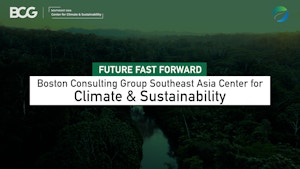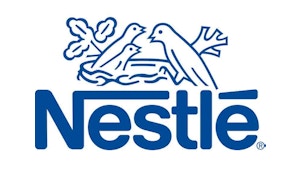Global News

Policy & Finance
COP29 action plan thrusts climate finance to the fore
United Nations climate summit president Mukhtar Babayev highlights the new climate finance target as top priority for the November talks. Will Azerbaijan be able to get the dealmakers, including China, to agree on a price to pay to help developing countries adapt to climate change?

Carbon & Climate
Seeing mangroves regrow: A visual story on the surprise resurgence of Iloilo’s coastal forests
On International Day for the Conservation of the Mangrove Ecosystem, Eco-Business looks at the unexpected rapid growth of a thriving mangrove forest in Iloilo City, Philippines, following the completion of a man-made floodway.

On June 15, the government of Pará state in Brazil gave the green light for the construction of the new Avenida Liberdade highway in the state capital, Belém, that will split up two conservation areas and run past a traditional Afro-Brazilian community.

Policy & Finance
Mandy Rambharos named new Verra chief, pledges strong governance
The world’s largest carbon credit certifier has been updating its methods used to verify forest projects in a bid to regain market trust following controversy early last year.
Policy & Finance
GIC doubles down on climate tech amid market slump
Food & Agriculture
Climate and finance crises could leave 600 million hungry by 2030
Global Opinion

Policy & Finance
Rich countries must meet their biodiversity financing pledges
Two years ago, developed countries pledged at least US$20 billion annually by 2025 to help preserve 30 per cent of the world’s land and oceans. But most countries have failed to contribute their fair share.

There are growing calls for more corporate disclosure, but if firms release sustainability reports just to meet the needs of external stakeholders, including regulators, it is unlikely to motivate internal changes to business operations.

Carbon & Climate
Power-hungry AI is driving a surge in tech giant carbon emissions. Nobody knows what to do about it
Since the release of ChatGPT, the world has seen a surge in investment and use of artificial intelligence. The social and economic impacts of this boom have provoked reactions, but the environmental costs have received far less attention.

Road emissions are the leading contributor to transport emissions across the Indo-Pacific, surpassing those from shipping and aviation.
Transport
More stops needed for UN transport goals
Global Videos

EB Studio
From sponge cities to coastal forests, Asia is seeking ways to work with nature and prepare for the risks in a warmer-than-expected future. This Eco-Business video looks at what else cities need to do to strengthen climate resilience.

The vessel will scour Southeast Asia’s marine environment to gather data and support local conservationists.

Exclusive
Jack Johnson says yes, but it is a long road ahead. In this exclusive interview, we ask the American singer-songwriter and UNEP Goodwill Ambassador about his hopes for the state of the world and how music plays a role in providing a dose of optimism in dark times.

Policy & Finance
Tackling climate change in a mosaicked Asia
EB Studio
Asia's green transition pathways need to be socially inclusive given huge differences in economic development across the region, says experts at the Boston Consulting Group. State-owned enterprises have an "outsized" role to play, they add.
Global Podcasts

David Antonioli says current rules spur piecemeal offsetting instead of enabling faster growth of climate ventures. He expects pushback to his ideas in a market polarised over integrity issues, but wants players to think big-picture.

Policy & Finance
The race to insure Southeast Asia against climate risk
Asia lags the world in natural catastrophe protection. Part of the problem could be counting extreme weather losses only after they happen, industry insiders tell the Eco-Business podcast.

Energy
Scrutiny, Scope 3 and Asian realities: Petronas sustainability chief on climate action at COP28
The oil and gas sector needs to cut operational emissions faster, Charlotte Wolff-Bye tells the Eco-Business podcast. But slashing fuel output won’t do for the Asian supplier, and it welcomes respectful debate at the climate summit.

Food & Agriculture
Looking past the label: the nutritionists’ guide to plant-based milk
EB Studio
Plant-based milks have grown in popularity in recent years, driven by a combination of health, environmental and practical concerns. Nutritionists on the Eco-Business podcast, produced in association with Kerry, weigh the pros and cons of non-dairy milk.
Global Press Releases

UN Environment Programme (UNEP)
As global crises join forces, world must adopt forward-looking approach to protect human and planetary health

United Nations Development Programme (UNDP)
New joint UN report calls for urgent action to build peaceful, just and inclusive societies to prevent risks to all SDGs

United Nations Economic and Social Commission for Asia and the Pacific (ESCAP)
ESCAP, FDI Center launch pledge to advance gender equality in foreign direct investment
Global Research

Eco-Business for Temasek's Ecosperity
Ecosperity Week 2024 post-conference report: Renewing our Vibrant Spring

Plastic Credit Exchange (PCX)
How plastic credits are supporting the Global Plastics Treaty

MioTech
ChatGPT on financial reporting
















